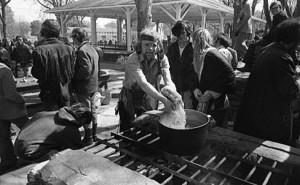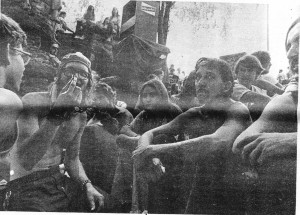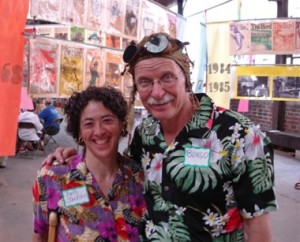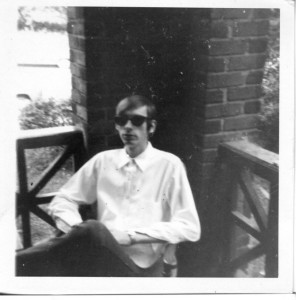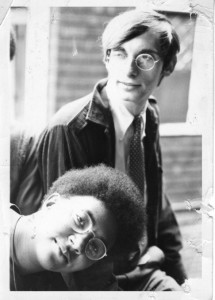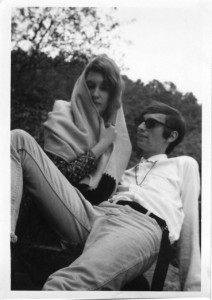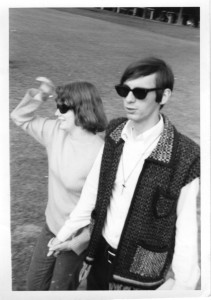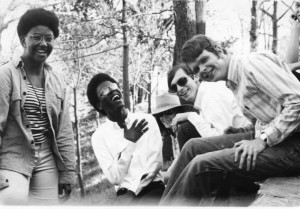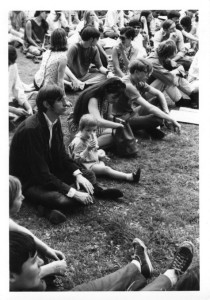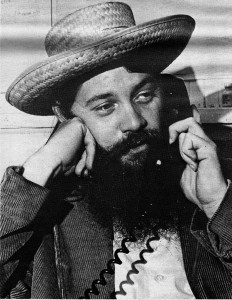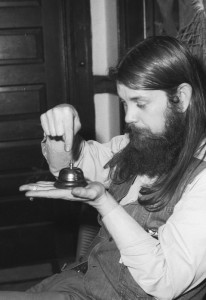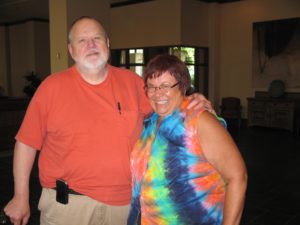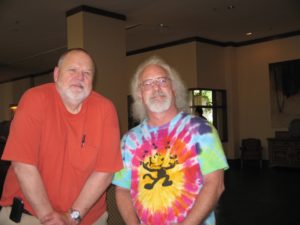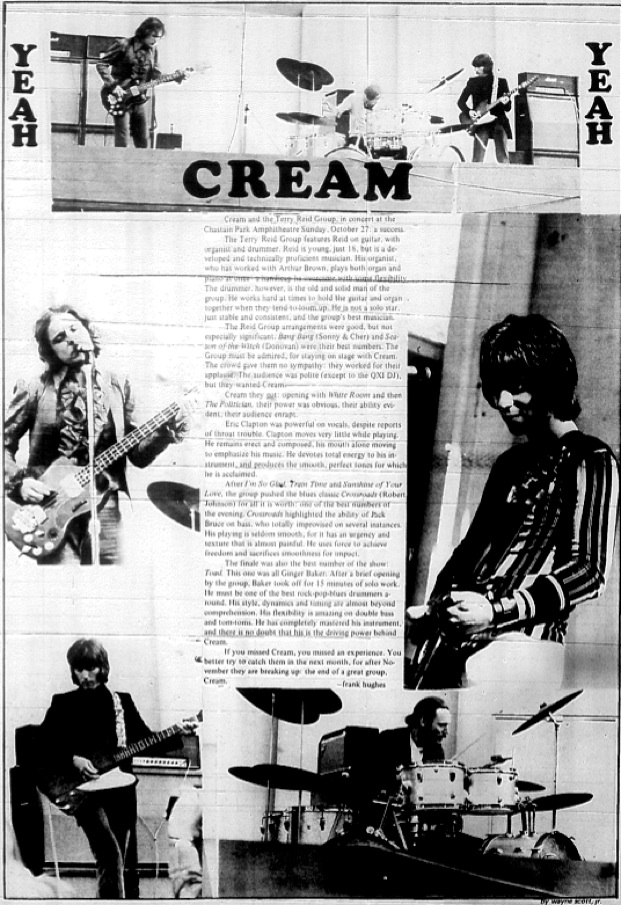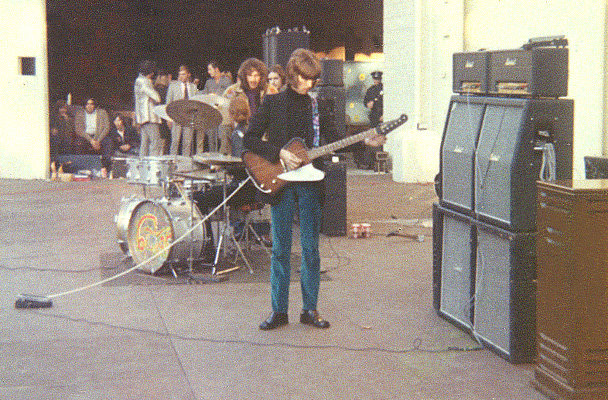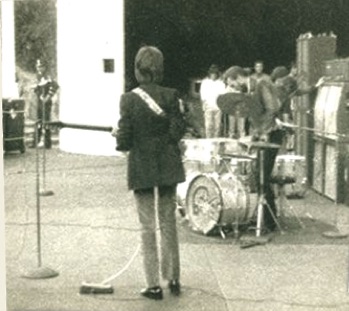The Great Speckled Bird Feb 19, 1973
Vol. 6 #6 pg. 1
Interview with Sam Massell
The question most asked about the he Massell interview is why Massell agreed to an interview with the Bird. We have never been very kind in the past, so one would think that he would know we would use whatever he said against him. But this is an election year, and Massell would like to mend fences with the “liberal community.” Although we ‘re not a liberal newspaper, this is the impression he has of our readers and he has apparently mistaken the “New Bird” to be a liberal newspaper. At least this was Roz Thomas’ impression before she had seen the first issue.
In the course of the interview Massell continually corrected questions, asked that they be rephrased and restated. He even suggested some questions that he would like asked. He made constant references to his desire to reach our readers. He said things like, “I don’t want your readers to be misled,” and “I just want your readers to have the benefit of knowing where I stand on the issues.”
Because of the many lies, half-truths, and deceptive statements of the mayor, we have had to follow some quotes by an explanatory note. During the interview we simply asked the questions and let him speak., But we feel that we cannot just print this interview and not let our readers have the benefit of knowing the truth. .
The interview was very long and the part we have printed here represents only about a third of it. The interview started off with Massell making a few comments about the war, which to his credit lie has been against for about five years. The only subject that was talked about extensively in the interview but has been slighted here was annexation
In the beginning of the interview Massell very cautious and subdued. As the interview progressed, he warmed up and toward the end was his old feisty self. After the interview was over he seemed quite upset. But I suppose you’ve all been waiting for the interview. Here it is.
BIRD: What do you think of the Bird’s coverage of City Hall?
MASSELL: There’s been good times and bad times. 1 thought, when the Bird just started several years ago-and I was a charter subscriber and one of its few supporters in governmental circles-I thought it was doing a very important job and accurate job. Toward the end of my reading period, which I said goes back several months ago, it had got to a point where it was not being very accurate and this is the problem that I have had with some of the other press.
BIRD: When are you going to announce your candidacy?
MASSELL: I would hope that whoever is interested in getting into any race which doesn’t come about till October wouldn’t be announcing for several months…. When you once announce that you are a candidate, automatically almost everything you say and do is considered politically…. It’s amazing what an idea…. Every time I mention something now, somebody says I’m doing it for political reasons.
BIRD: Nixon has announced budget cuts for EOA (Economic Opportunity Atlanta), housing, and other social service programs. In light of this, why do you insist on giving the $4.5 million in revenue sharing funds to homeowners who comprise 40% of Atlanta’s population. Can’t this money be used for social service programs?
MASSELL: That’s not a very honest question. Let’s go back and take it apart. Give me the words, let’s start over with it…. Read it the way you did the first time, seriously. This is where we get into trouble.
BIRD: Question is repeated.
MASSELL: My insisting on giving that money back was long before Nixon’s budget cuts. You’re saying in light of that. That was not an honest question. This is intellectual dishonesty and I’m sorry, I don’t deal in it. … I’m not as concerned about you asking me something that’s dishonest as I am your readers not having the benefit of knowing where I stand on the issues. . . . Come on and be honest with me. Why don’t you ask me the question, “Mr. Mayor, why don’t you take this $4.5 million in revenue sharing and return it to the public?” Yes, I’m wholeheartedly in favor of that. What’s your next question?
BIRD: OK. Why do you still insist on returning this money to 40% of the population?
MASSELL: Well, that’s wrong, too…. I haven’t designed any plan for its return. I said return it to the public, period.
(Ed: The plan recently passed by the Aldermen to return the money by rebates on water and sewer bills was the mayor’s. He proposed it to the finance committee. On Jan 24 he told newsmen that he had presented the idea to the Finance Committee. When the city attorney questioned the legality of it, he defended it by saying he saw “no real problem” in giving taxpayers a rebate on their water and sewer bills. The ACLU is now suing over the legality of this measure. The city attorney said that while 40%s0fthe city’s population own homes, about 60% pay water and sewer bills.
BIRD: Don’t you think this money should be used for social services?
MASSELL: … I think very definitely the county and the state should use their money for social services because they are charged with the responsibility of handling social services. This is a long-standing policy of governments in this area. It’s not true in New York, it’s not true in some places where the cities do handle welfare. This city has never been in the welfare business, but it has been relegated to the county, just as the county has never been in the police business….
BIRD: Couldn’t this money be used for housing7
MASSELL: In what way?
BIRD: For Model Cities.
MASSELL: [Surprised] Oh! [pause] Model Cities [longer pause] We’re using that money for social services….. uh … I forgot the figure and I hate to give you one now. But if you’ll check, I’ll bet it’s several hundred thousand dollars.
[Ed: Model Cities programs include housing, day care, health care and other social services. Out of a $7 million Model City budget the city’s share is about $200 thousand. Model Cities is scheduled to be phased out in 1974 due to recent Nixon cutbacks. It has been recommended that cities take over the funding.]
BIRD: You said the World Congress Center was the city’s number one priority. Why?
MASSELL: Of the legislation pending in this session of the General Assembly, considering the possibility of passage, the priority I placed on the top few were: 1) the funding of the congress center, 2) expansion of the city, 3) the adoption of the charter commission, and 4) the city income tax. … It [the building of the center] will mean something like $200 million a year . . . in business to the area … $6 million in taxes to the state … all of this helping the economy. You can’t do any of the things you want to do for the people if you don’t have a sound economy. [Ed: At least he made it clear what his priorities are. He had just said minutes before that the city didn’t handle social services. Now he’s saying the city can do things for the people if it has a sound economy. Atlanta has one of the soundest economies of any city in the nation, yet none of this has particularly helped the people.]
BIRD: Last year the Chamber of Commerce supported your annexation plan. This year they are lobbying for [ Fulton County Commissioner Milton ] Farris plan. Is this an indication the downtown business community no longer supports you?
MASSELL: I don’t think they’ve taken an official position. I [pause] well [pause] I told them very clearly I would support any plan.
BIRD: In light of some other things that have happened, like your involvement with organized crime, do you still think the downtown business community supports you?
MASSELL: I have found in my political travels, which include three years as mayor, eight years as vice-mayor, eight years as secretary of the city executive committee and two years as city councilman of Mountain Park, that there are hills and valleys and areas of support … that people remember what you did yesterday, well, they remember what you did today. I’m not sure they remember what you did yesterday. And I explained this to some of my close friends when I became mayor when we had a big strike-because of that support from the people you keep calling the business community, but I explained it wouldn’t be but a short time .. . that in fact I would lose that support and gain some other and then it wouldn’t be long till I would do something that would lose that support. … If they like what you’re doing at the time, they’re for you. If they don’t like what you’re doing at the time, they’re upset with you. We’ll have to wait and see, you know, when the final count is taken, whenever that might be.
BIRD: Is there a source of friction between you and vice-mayor Maynard Jackson?
MASSELL: What do you mean ‘source’?
BIRD: Well, for one it’s been rumored since he became vice-mayor that he was going to run for mayor.
MASSELL: That’s been rumored since he first became elected. So right away if he didn’t, you know, denounce that, if he didn’t disclaim that, then it would look like that we would be at odds. And if he’s an announced opponent, if all of a sudden you tell me you’re my opponent or somebody else tells me they’re my opponent and they say it publicly and they don’t disclaim it, then I sort of figure you as an opponent. An opponent is sort of an adversary … [Ed: What Massell just said is that Maynard Jackson is his opponent in the upcoming election.]
BIRD: Why did you defy the Grand Jury and reappoint Jackson and Summers to the police committee?
MASSELL: How do you define defy?
BIRD: At the very least you went against their recommendation.
MASSELL: … They made a recommendation I didn’t agree with … They made eight recommendations; I disagreed with two of them … …
BIRD: If there was corruption in city hall, in the aldermanic committees, it would be in the zoning and police committees. Why, then, is the same controlling block on each of these committees-Jackson, Lambros and Summers?
MASSELL: … I think they’re both doing excellent jobs … I don’t get complaints on them, so I have to make that decision based on several factors…
BIRD: Is it coincidental that these same three are on both of these committees?
MASSELL: Oh, I see what you’re talking about. I didn’t even catch what you were talking about. I wasn’t even aware of it till you just mentioned it. I’d have to stop and look. [A discussion of who is on those committees takes place.] Yeah, that’s coincidental…Do you think there’s more [emphatically!] Let’s put it that way. Do you think there’s any dishonesty in any one of item? Do you think there’s any graft in any one of them? Do you think there’s any corruption? Does the Grand Jury think there’s any? Nobody’s suggested there’s any. So if you think there is, you must say so in your paper. [Ed: Well of course there is. For Massell to even suggest that he didn’t know who was on these committees is absurd. He just made the appointments himself a month ago and made sure his opponents, Wyche Fowler and Wade Mitchell were removed from the chairs of important committees. Massell privately calls these committees his “reelection committees.” He’s going to collect campaign contributions the same way he did last election. (See last week’s Bird)]
BIRD: This is where the pressures are, in the zoning and police committees. People want favors from both these committees and why are these same three people on each of them?
MASSELL: Maybe because they’re the three most honest men in public office. That would be a good reason wouldn’t it? You know if these are the most dangerous positions that you must put your most honest people in them, then maybe they’re the most honest…No I wasn’t even aware of the fact that they’re both on both…
BIRD: Why have you finally decided to setup a housing committee to which you appointed all the “liberals” when there is no money for housing?
MASSELL: I just don’t believe in rolling over and playing dead…It was recommended by the Citizens Advisory Council.
BIRD: Concerning what is to be done with the Stone Mountain Right of Way…are the people going to have any say so?
MASSELL: I supported the motion that the public be involved, like the BOND community and we named several others, in the planning and reuse of this property…
BIRD: In what way do you see this involvement, just advising?
MASSELL: Well until we have some new form of government…our present form is that the-government awakes the decisions…(angrily) The government makes the decisions! No way to get around it! No way to let you do it under the present system! No way for me to give you the power to decide what’s going to be done with that land.
BIRD: In your state of the city message you pointed out four areas that you thought the city could have done better in.
MASSELL: Let’s stop. You’re expressing that broadly..! didn’t say, thought we could have done better in. I thought we did as well as we could… These were areas I defined as current needs.
[Ed.: Quoting from his address, ” We can look back with pride at our successes, but we must not conveniently overlook our avenues of failure and conditions of concern. We can do better, and cannot accept as final the short- comings we suffered in (l)the efforts to expand our boundaries and broaden our tax base; (2)the growth of crime, both of the organized and the stranger-to-stranger variety; (3)the inadequate stock of low and moderate-income housing, and (4)the drastic federal cutbacks in funding of social service programs.”
BIRD: Do you have any particular programs in the areas you mentioned?
MASSELL: In the housing one I’ve already appointed a committee which you object to now, (laughter) interestingly enough.
BIRD: I didn’t say I objected.
MASSELL: But you questioned it with venom in your veins. You ought to be ashamed of yourself after being the one who fussed so much about housing with me before.
BIRD: You chose those people/and gave them no power, that would be sensitive because they can’t do anything.
MASSELL: You’re just as wrong as you could be… I’m not going to roll over and play dead, you can.
—mike raffauf
 From Atlanta and Environs: a chronicle of its people and events; years of change and challenge, 1940-1976: “In December, though, a twenty-seven-year old Atlantan who police said was the king pin of the LSD traffic at pop festivals was arrested while attempting to deliver fifteen pounds of marijuana and 900 LSD tablets to Cocoa, Florida. A long-haired man, he was known in hippie circles as “Atlanta Schroder.” When his apartment, which he shared with several others, was searched, 5,000 LSD tablets were confiscated. Schroder, being absent, was not among the eighteen arrested in this raid.”
From Atlanta and Environs: a chronicle of its people and events; years of change and challenge, 1940-1976: “In December, though, a twenty-seven-year old Atlantan who police said was the king pin of the LSD traffic at pop festivals was arrested while attempting to deliver fifteen pounds of marijuana and 900 LSD tablets to Cocoa, Florida. A long-haired man, he was known in hippie circles as “Atlanta Schroder.” When his apartment, which he shared with several others, was searched, 5,000 LSD tablets were confiscated. Schroder, being absent, was not among the eighteen arrested in this raid.”